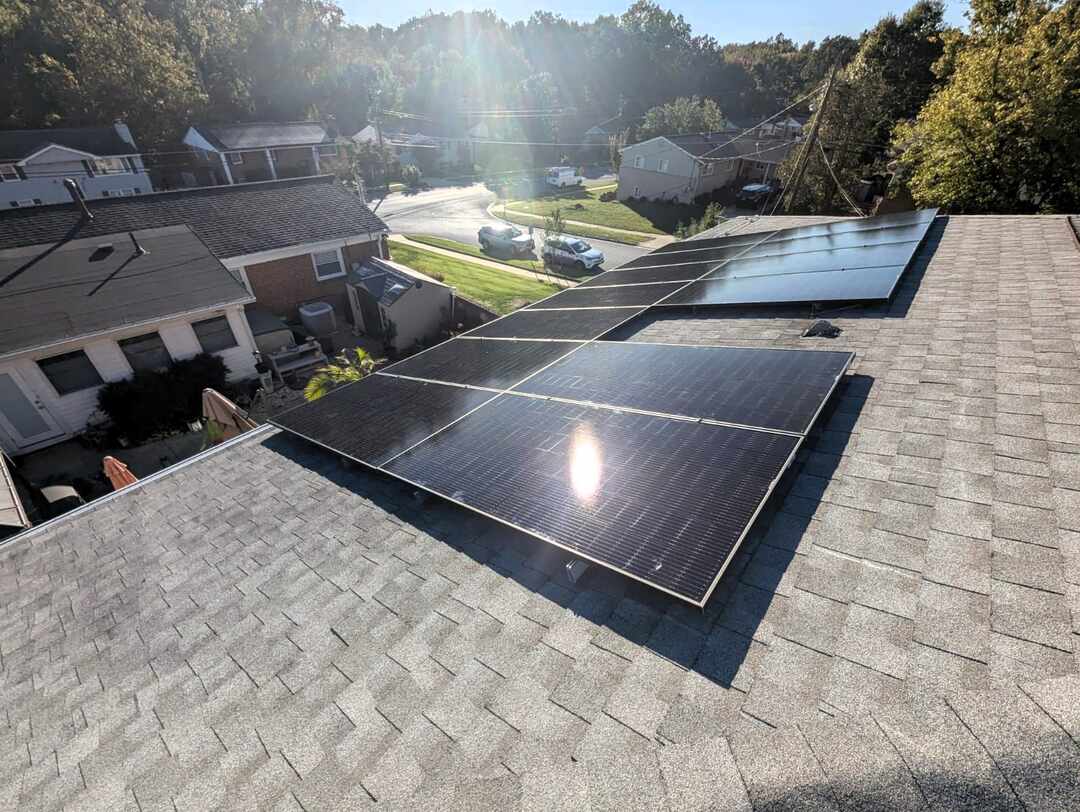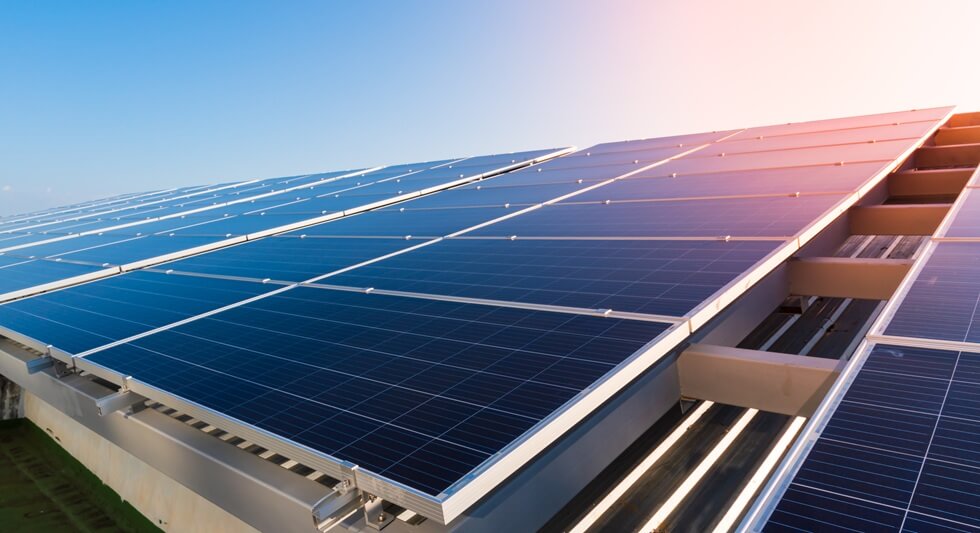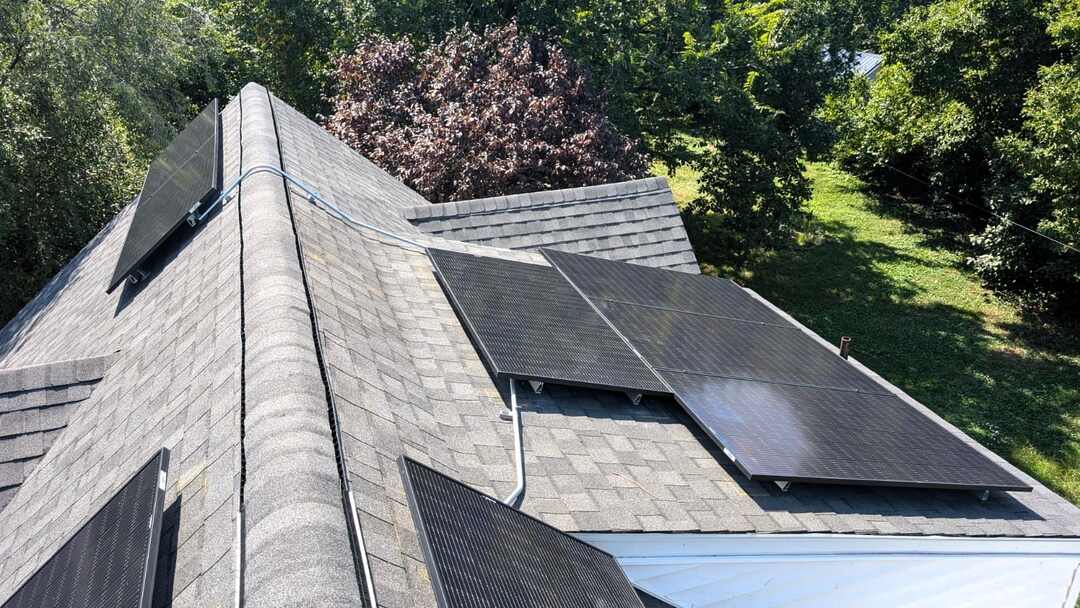Solar panels in Maryland continue to be popular, but not all homeowners are ready to take the plunge. Maryland residents interested in investing in solar energy need to clarify what’s true and what’s not about going solar. Here are some common myths we see about solar power.

Solar Panels Will Ruin Your Roof
Homeowners who heard of roofing issues arising with solar panels may have encountered a home that needed minor roof work first, and didn’t receive it. Uprise is a roofing and solar company, and we can help prepare your roof with repairs or a reroof before you go solar (especially if you have an older roof). We work with TJ, our trusted roofing contractor with decades of DMV roofing experience. Check out this blog post to see 10 of TJ’s roofing projects, including several in Maryland!
And if you’re wondering more about the solar installation process, while the mounting framework for solar panels attaches to the rafters, we use roof attachments with water seal ratings that seal to the shingles to provide waterproofing.
Solar Panels Eliminate Your Electricity Bill
While it is true that solar panels can replace much of the power a home draws from the grid (depending on your roof size and electricity usage), solar doesn’t necessarily reduce energy bills to zero. Simply remaining connected to the grid — which most homes are so that they can benefit from programs such as SRECs or net metering — means homeowners pay service fees to their utility company, like BGE or Potomac Edison, each month. However, many homeowners pay around $20 or less per month.

Solar Panels Don’t Work When It’s Cold Or Cloudy
Even though you might not be able to feel the sun’s rays, radiation still filters through the clouds during the day, regardless of weather or temperature. Heat does not correlate with how well a solar panel works — solar panels actually love cool, sunny days. And they’ll continue to function on a cloudy day or in the winter.
Solar Panel Manufacturing Is Bad For The Environment
Some homeowners believe that manufacturing solar panels is so bad for the environment that solar isn’t worth it. The truth is that solar panel production does generate some carbon emissions — but solar’s lifetime emissions are around 20 times less than those of coal-generated electricity.
In around three years, solar panels will ultimately compensate for the emissions generated to manufacture them. And solar panels dramatically decrease a home’s carbon emissions.

Maintenance Is More Expensive Than Installation
Solar panels represent a financial investment in green energy. Still, many homeowners believe the initial cost is only a tiny slice of the panels’ lifetime expense.
In reality, solar panels are made to last, for 25 years or sometimes even longer. And Uprise Solar only installs panels with warranties to cover any malfunctions. During those 25+ years, maintenance is frequently limited to keeping the panels clean, which homeowners can do themselves with a hose (if the rain doesn’t do it for them first). And if something goes wrong, a quick visit from us can set things right. (We can even troubleshoot and solve some issues remotely.)
No One Wants To Buy A House With Solar Panels
Homeowners are right to consider how a solar panel installation might impact their home’s value. But the misconception that solar panels are ugly or hurt a home’s sale price isn’t based on reality. Studies show that more than 80% of home buyers believe energy-efficient features are essential. Turns out, homes with solar panels sell for around 4% more than homes without them.
Invest In Solar Energy In Maryland With Uprise Solar
Plenty of solar misconceptions can negatively impact homeowners who are considering going green, but by learning the truth, you can make an informed choice about installing solar energy in Maryland.
Partner with seasoned professionals, who can answer all your questions honestly and equip you with the knowledge you need. We’d love to guide you on your solar journey! Schedule a conversation with our sales team here to receive a customized quote based on your specific energy goals.
